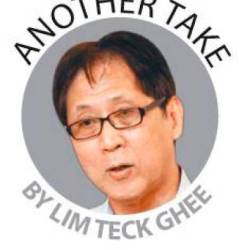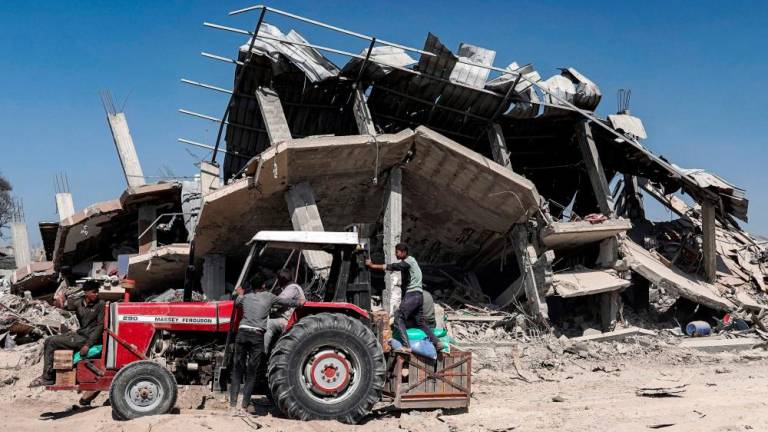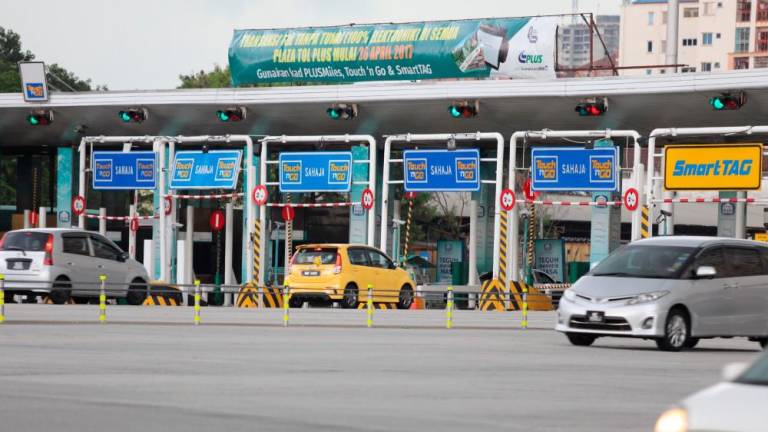SINCE May 9, 2018, little or nothing has changed in the configuration and reality of an all encompassing Malay political dominance.
In the euphoria after the electoral tsunami most Malaysians were hopeful of a new era of clean, transparent and accountable government. At the same time some members of the public and analysts on both sides of the political divide saw this as the beginning of the end of Malay political dominance.
One year later this hyped up view of the loss of Malay power continues to reverberate strongly among supporters of the former government.
It is also echoing in the Malay community spooked by the criticism against the new government. Prominently featured in the non-stop attack by Umno and PAS leaders against Pakatan amplified by the Malay print and social media is the allegation that Malay power has been irretrievably eroded. Hence the need for the opposition to reclaim it to safeguard the Malay position.
But how damaging has the election defeat been for Malay political dominance? In what ways have Malays lost the power they have held since independence? And how will this impact on the nation’s political and socio-economic development?
First, it needs to be emphasised that Malay political dominance stems not from the outcome of elections solely but from a multitude of sources. They include the unassailable position of the Yang di-Pertuan Agong and sultans; the dominance of Malay parties at federal and state levels of government (the latter in 10 states); the monopoly of key positions in the Cabinet including the prime ministership, deputy prime ministership and Ministry of Home Affairs; dominance of the three branches of government – executive, legislative and judiciary; and last but not least, Malay overwhelming control of the bureaucracy and leading institutions in the public and private sectors.
Though there are more non-Malay elected representatives compared with the previous Parliament and state assemblies, non-Malay political leaders are well aware of the limits to any challenge against Malay political dominance.
They are also cognisant of the backlash from resurgent conservative Malay forces determined to protect and enhance the status quo in Malay dominance.
Second, much has been made of the appointment of non-Malays to positions which Malay politicians see as the virtual birthright of their race. Such appointments have been castigated as evidence of the loss of Malay power. For example, the appointments of Lim Guan Eng and Tommy Thomas have become lightning rods for racial hostility and are construed as evidence of the eclipse of Malay power.
However, with each action taken by any non-Malay appointee scrutinised to uncover the “hidden” plot to undermine Malay supremacy, there is no way that any individual or even group of non-Malay appointees – at whatever level of government – can make much difference to the prevailing Malay dominance.
For now the continuity of Malay political dominance and perhaps a softer form of political “ketuanan” from that pursued during the Barisan era are the main takeaways from the broken and stalled reform promises contained in Pakatan’s election manifesto.
As to the future, the writing on the wall is that any reform must pass through the gauntlet of resistance and opposition from both the Malay-dominated state as well as the less discernible Malay deep state.
Malay deep state
“Authoritarian ethnocracy”, “flawed democracy”, and “failed state” are among the less kind terms used by scholars to describe the country’s political system under Malay dominance. Not discussed or analysed is the existence and workings of a Malay deep state.
In other parts of the world, the deep state has been defined as a body of people, typically influential members of government agencies, the military and other sectors, involved in the secret manipulation or control of government policy.
What is the deep state in Malaysia and how does it impact on the new Malaysia in the making?
It is necessary to point out that the existence of the Malay deep state is hard to definitively establish or pinpoint. This is because, as in other countries, it is an amorphous group (or groups) that operate behind the scene in the polity. It also features different stake players from high and the highest levels of politics, economy and society who meet informally to strategise on ways to advance the Malay, and increasingly, Islamic agenda – as well as their own agendas.
Although coming from different sectors and political camps and sometimes at odds with each other, the Malay deep state members are united in their concern for the preservation and advancement of Malay dominance.
It is likely that the Malay deep state has been in existence since May 1969 if not earlier with its most recent manifestation now confirmed by leaders of the current government.
Although he did not refer to the existence of the deep state, Prime Minister Tun Dr Mahathir Mohamad has in several speeches alluded to “incitement” from outside sources, making it difficult for him to trust civil servants in the current administration.
Speaking in his typically blunt manner during a town hall session with several thousand administrative and diplomatic officers in Putrajaya, he noted:
“Last time, I had no problem (trusting them) when I was prime minister. Now (as) prime minister (again), we are not as trusting due to the incitement from others.”
A fuller reference to the Malay deep state was provided by Foreign Minister Datuk Saifuddin Abdullah. Explaining why Putrajaya had withdrawn its ratification of the International Convention on the Elimination of All Forms of Racial Discrimination, he explained that “(There was the) possibility of the issue being manipulated to the extent that people go to the streets, moved by the ‘deep state’ and certain apparatus.”
Elaborating on this issue, Federal Territories Minister Khalid Abdul Samad explained that it was important for the government to tread carefully on Malay issues because a potential coup d’etat could take place, given that the Malays are the majority in the country.
The future
While the future well being of Malay dominance is assured it is how this dominance is used to advance the Malay agenda that is the 64,000 dollar question. Greater Islamisation? More ketuanan socio-economic policies? Further finger pointing at other communities for Malay difficulties?
From another perspective it is the tussle or convergence of mission between the current Malay leaders of our multiracial nation and the Malay deep state that will provide clues to the direction of our national development.
This is the second in a series on the state of Malay dominance. Comments: letters@thesundaily.com














